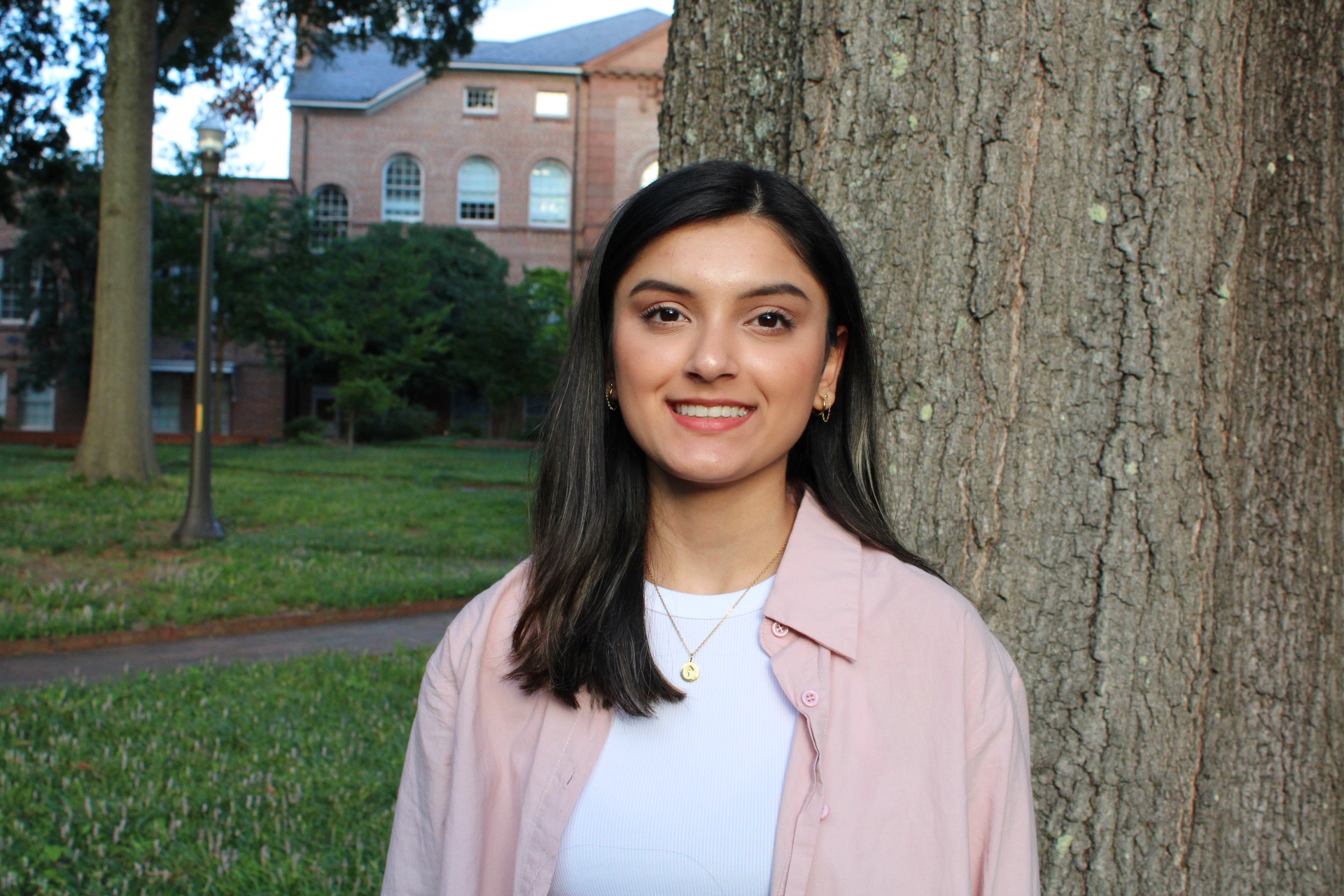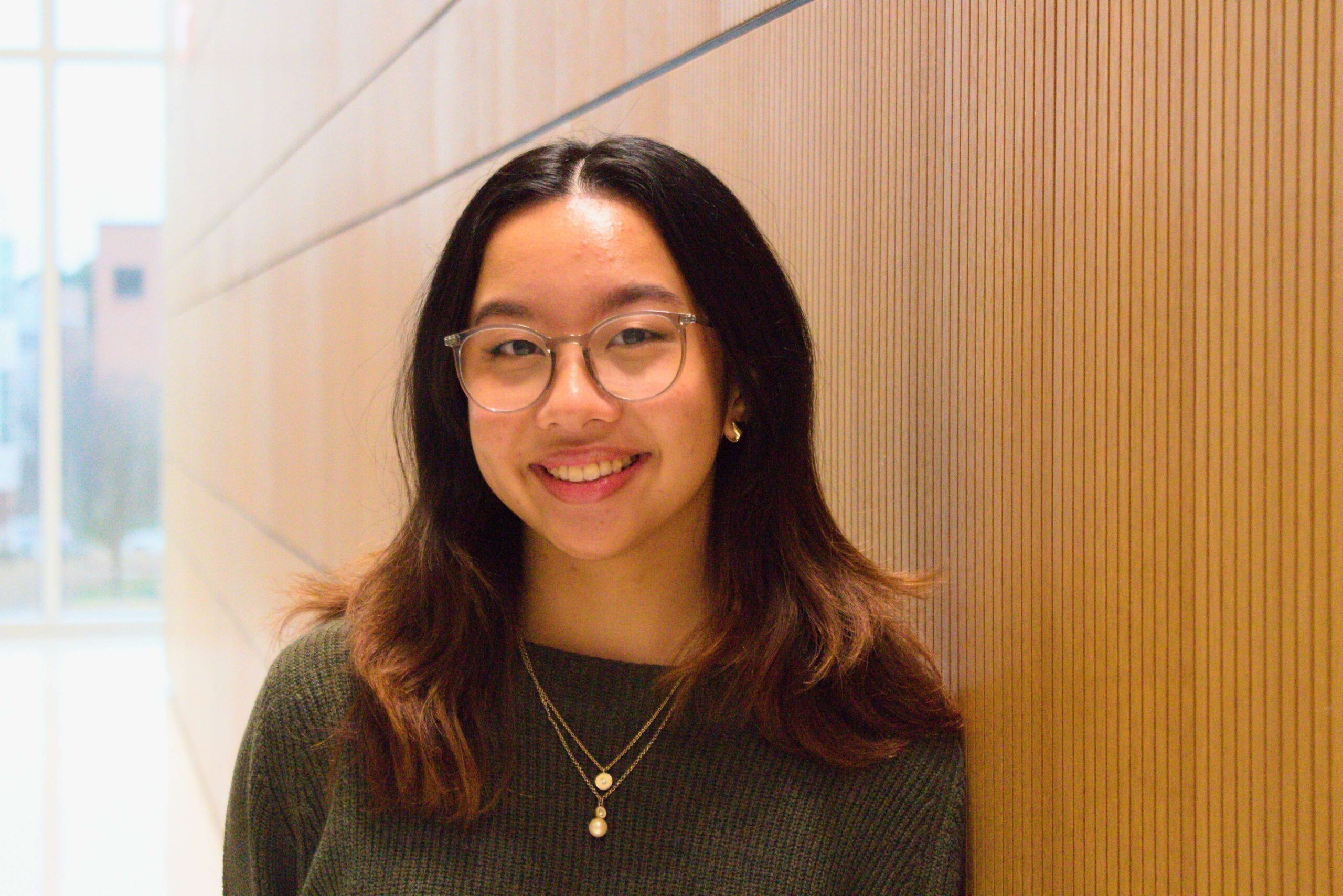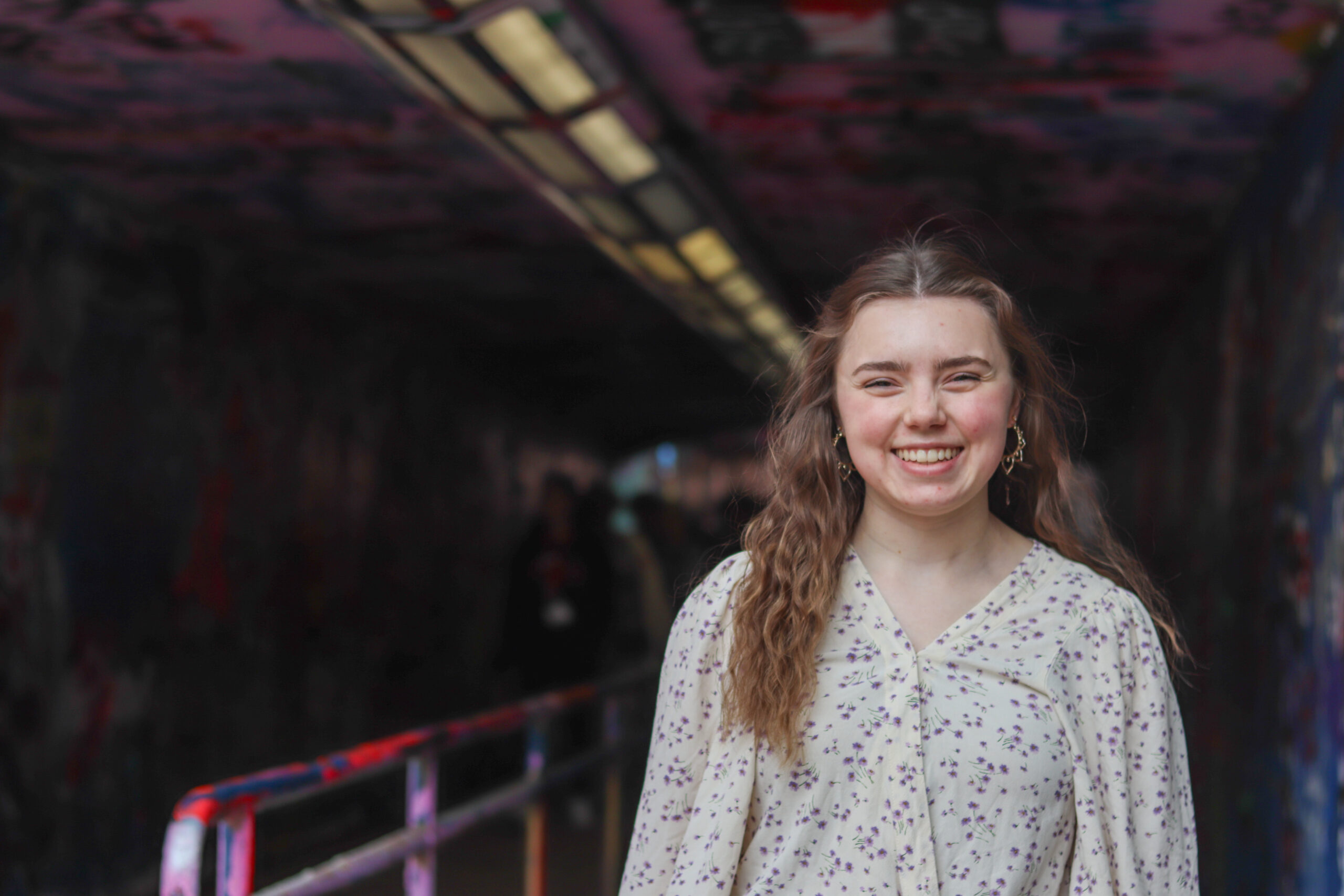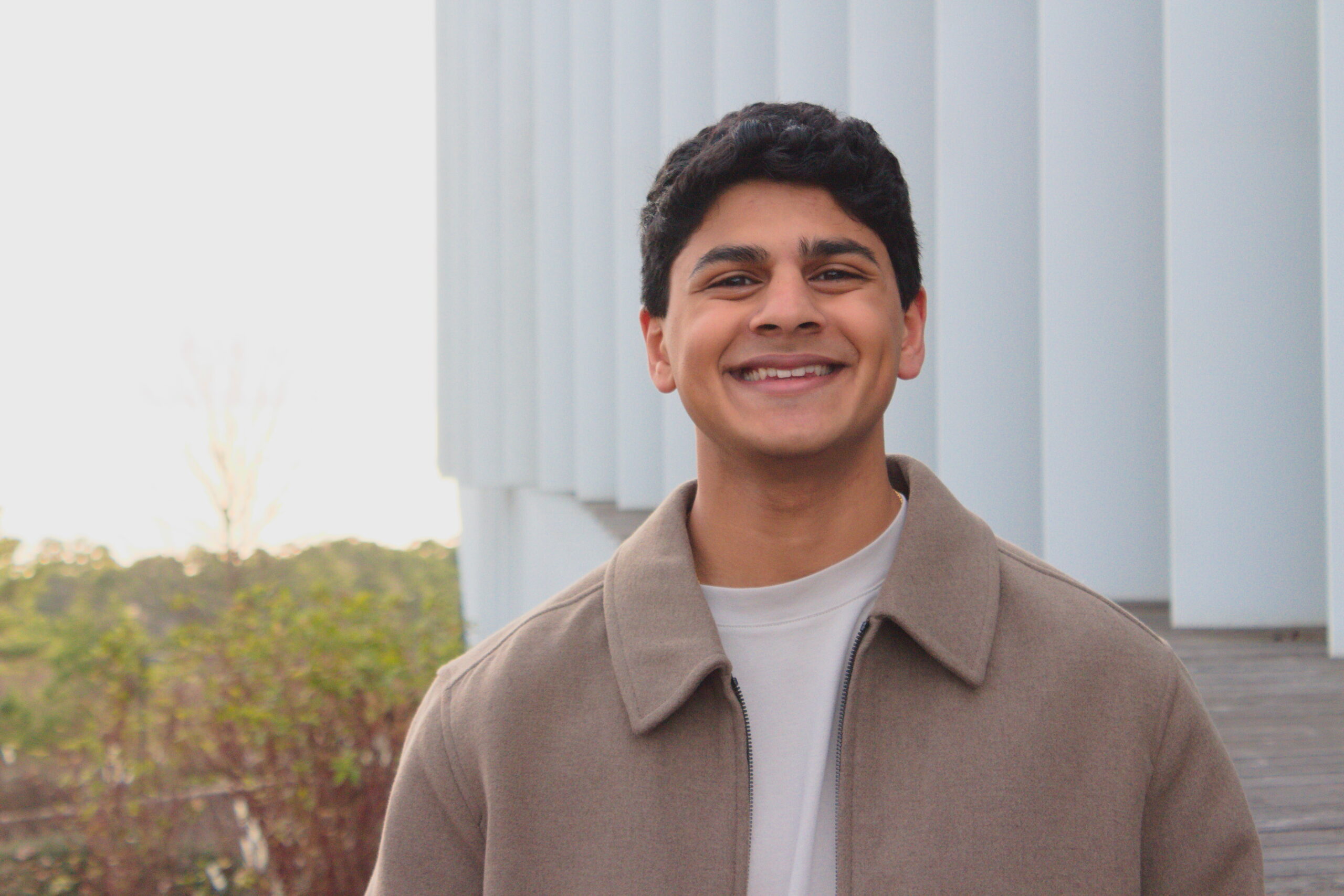Muskan Aslam knew that she wanted to participate in undergraduate research the minute she got to NC State’s campus. Continue reading to learn more about how Muskan Aslam, class of 2024, combines her research experiences and service-oriented activities to reduce the gender-disparity in the field of engineering.
As soon as I got to NC State, I knew I wanted to participate in undergraduate research. Once the university was able to outline more guidelines during the pandemic, research labs were once again open to undergraduates. In the summer after my freshman year, I participated in a research program through the university’s Women and Minority Engineering Program. From there, I started my work in Dr. Brown’s Advanced Wound Healing Lab. The following spring and summer, I began training in the Summer Interdisciplinary Research Initiative (SIRI) through the Comparative Medicine Institute. Currently, I’ve continued the project through the National Institutes of Health (NIH) U-TEAM program. This project in particular was impactful because it introduced me to an interdisciplinary project that spanned three different research labs. One lab focused on the tissue engineering side of BME, the second was more biomechanics oriented, and the third lab focused on work in veterinary medicine. In particular, we worked on developing a tendon-on-chip device for the study of tendon injuries. These research projects solidified my ability to independently run experiments, and provided me with valuable presentation skills. I participated in the Summer Undergraduate Research Symposium at NC State two summers in a row. This past August, I also presented a poster and a talk at the Comparative Medicine Institute’s Research and Innovation Summit. In the coming fall, I will be presenting my research at the national Biomedical Engineering Society conference.
While these research opportunities were monumental in shaping my undergraduate career, my time in biomedical engineering has also impacted other aspects of my life. As a teenager, I never experienced the same encouragement and admiration that many of my male counterparts did when they announced they were pursuing an engineering major. I never had a role model who looked like me, and never had opportunities that were focused on promoting women in stem. I recognized that many women shy away from engineering in their younger years because of the lack of encouragement, the lack of female role models, and the lack of gender-specific programs.
This led me to join Girls Engineering Change at NC State, which I currently serve as president of. Our organization hosts monthly workshops for young, aspiring, female engineers in the local Raleigh community. The students receive hands-on engineering experience through engineering kits, they establish connections with their female peers, and get to see older college students in the same role they hope to be in some day. We also host a mentor program for high school students, and an engineering day event in the spring semester. Our work was recognized through two different awards last year: the Student Organization Growth and Development Award and the Outstanding Civic and Community Impact of the Year Award. Working with younger female students is so crucial for ending the generational issues surrounding gender-disparity in engineering and I’m really glad I get to be a part of reducing such a huge problem in our society.
My time as an undergraduate research assistant and as a board member of Girls Engineering Change has particularly influenced how I resonate with my gender and ethnic identity. I realized that researchers in my labs, authors of publications within my field, and professors in my department didn’t mirror my identity at all. Recognizing the lack of representation, I wanted to be a part of efforts that would reduce these issues for the next generation of engineers.
In the long run, I plan to continue my work in reducing gender disparity in engineering in some capacity. After completing my undergraduate degree I intend to pursue a PhD in biomedical engineering and ultimately serve in a long-term research position for a larger medical institution. I hope to focus on research efforts that will help benefit minority communities, who often don’t get to reap the rewards of medical innovations. Juggling research, classes, and board positions can be challenging, but knowing that I can make an impact for future females and minority groups makes the work worth it.
- Categories:



